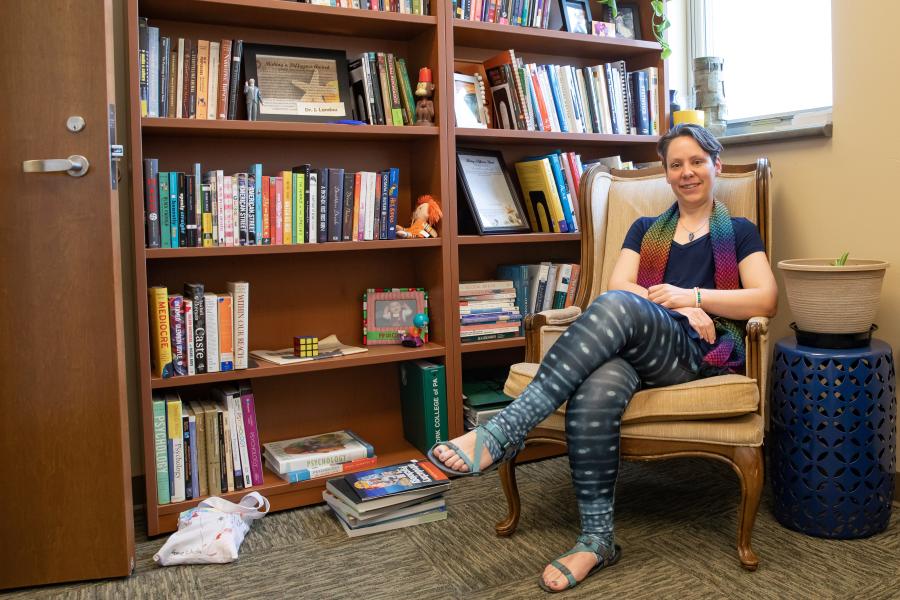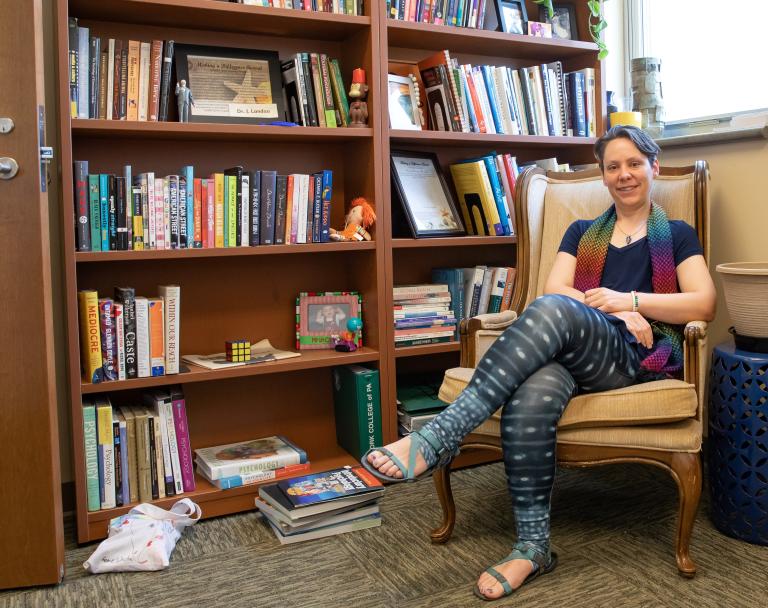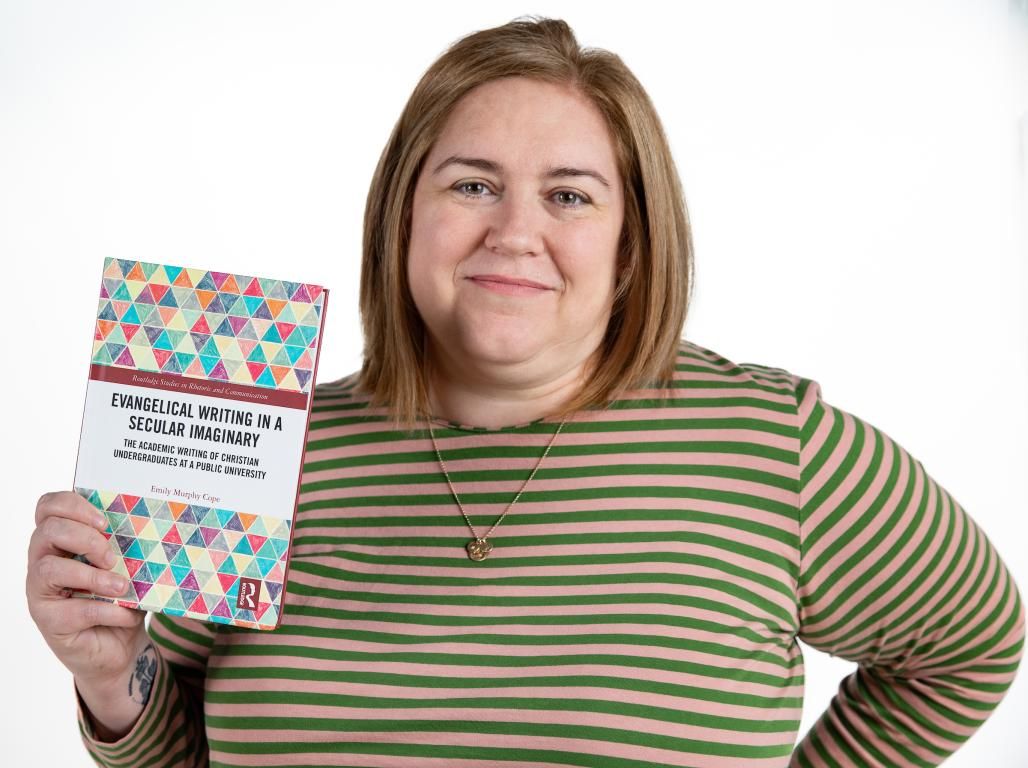With a background in research and a strong emphasis on collaboration, Dr. Randi Shedlosky-Shoemaker seeks to make every student feel heard.

Research Background and Experience
Dr. Randi Shedlosky-Shoemaker, Associate Professor of Psychology, has been at York College since fall 2011. “I accepted the position because it involved coordinating the teaching of PSY100, and I was really excited to serve in a faculty-development-focused role,” they explain.
Dr. S–as many students know them–teaches several courses in psychology, but the course you’ll most often find them in is Multicultural Awareness. “I also get to teach General Psychology and Psychological Perspectives on Intimate Relationships, along with some of our required Psychology core courses,” they add.
They received their doctorate in social psychology from Ohio State University. “My doctoral research focused on how people become engaged in narratives and entertainment media and the consequences that engagement can have. That became a natural stepping stone to pedagogy for me,” Dr. Shedlosky-Shoemaker says. “As educators, we often use narratives to teach, and we often concern ourselves with student engagement.”
In line with the courses they teach now, their current research focuses more on social identity, inclusivity, and equity within education, including how to teach these topics.
“When I came to YCP, my role didn't involve doing research, but my curiosity and interest in science compelled me to continue to ask questions and look for evidence,” they say. “Because my role was heavily focused on teaching, it made sense to find a way to do research within that area—my teaching became a source for research, and my research helped improve my teaching in a thoughtful and intentional way.”
Outlook of teaching
Dr. Shedlosky-Shoemaker’s approach to teaching is collaborative, involving students and other faculty in the process.
“For me, teaching is a collaborative activity. This comes across in two different ways. First, I really enjoy working with other faculty members to develop and improve courses; I find it exciting to share ideas and discuss why something might work. Second, I try to involve students in the teaching process,” they explain. “Each semester, I take ideas from previous students and tweak my classes, and during the semester, I try to give students the space to share their perspectives and expertise in relation to our course topics.”
Their favorite part of teaching is being able to explore their areas of curiosity.
“I love those moments when I can lean into my curiosity and learn something new. It's especially fulfilling when I am in my classes and I get to share those ‘aha’ moments with my students—when we are able to collaborate and help teach each other something,” they add.
Teaching Psychology courses gives Dr. S a chance to reach students beyond the Psychology major.
“I want students, not just Psychology majors, to appreciate that human behavior is complex. Because we each bring in a different mixture of experiences, background, skills, and expertise, we can perceive a single situation or outcome differently than the person sitting next to us,” they say. “It doesn't always make one person right and one person wrong; rather, it's like each person has different pieces of the overall puzzle—each person has a unique piece to offer in understanding the whole of an event.”
Dr. S’s advice to students looking to pursue a career in psychology is to embrace complexity.
“Psychology is always relevant! Because it's about studying human behavior, and humans tend to be everywhere, there's always something within the field of psychology that can inform our understanding of the world,” they added. “Learn to embrace complexity—two seemingly opposing ideas can be true at the same time; it's about figuring out how they manage to co-exist, rather than outright dismissing one as ‘wrong’ and concluding the other has to be ‘right.’”
Outside of teaching, Dr. Shedlosky-Shoemaker enjoys spending time with their family—Matt and Luc, as well as their cat, Dodge; they also like to spend time traveling, reading, running, and doing mixed martial arts and yoga.





